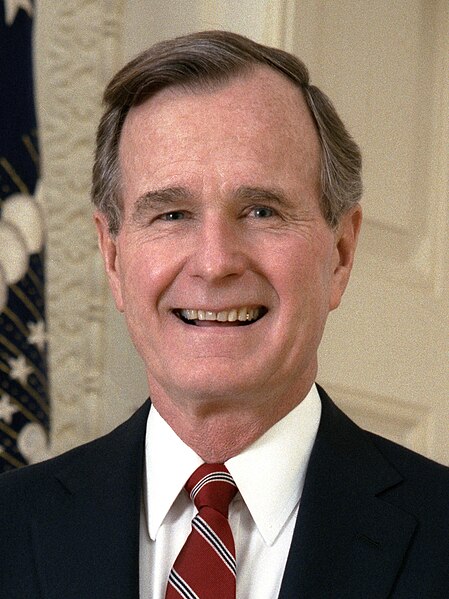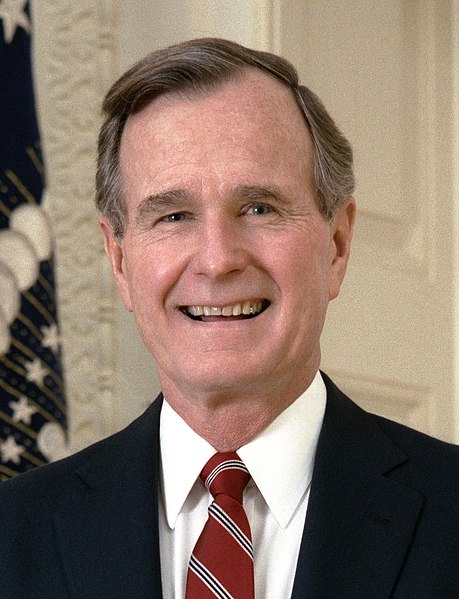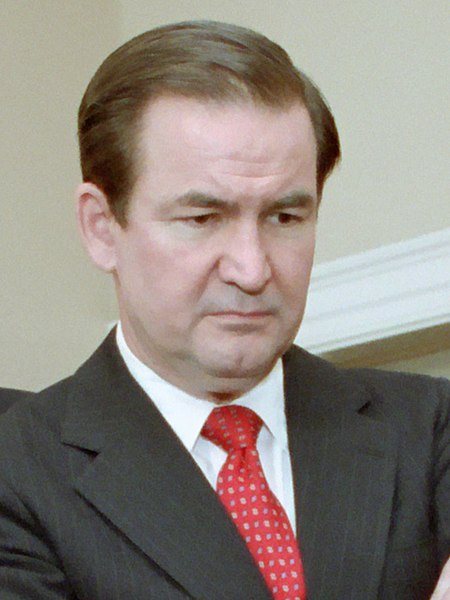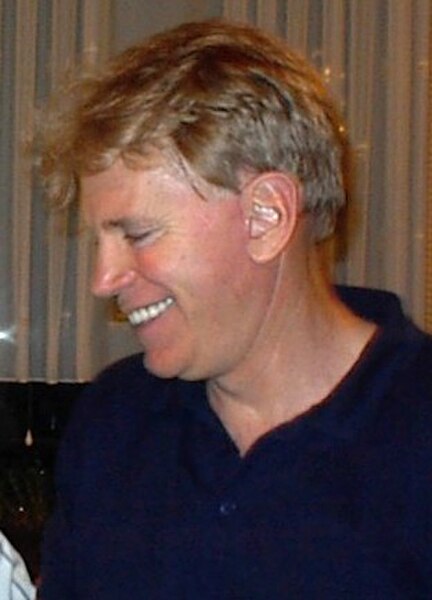Patrick Joseph Buchanan is an American paleoconservative author, political commentator, and politician. Buchanan was an assistant and special consultant to U.S. presidents Richard Nixon, Gerald Ford, and Ronald Reagan. He is an influential figure in the modern paleoconservative movement in America.
Buchanan in 2008
Buchanan on July 12, 1969
Buchanan at the Florida State Capitol in 1992
Buchanan being interviewed in 2008
1992 Republican Party presidential primaries
Presidential primaries and caucuses of the Republican Party took place within all 50 U.S. states and the District of Columbia between February 18 to June 9, 1992. These elections were designed to select the 2,277 delegates to send to the national convention in Houston, Texas from August 17 to August 20, 1992, who selected the Republican Party's nominee for president in the 1992 United States presidential election, incumbent president George H. W. Bush. The delegates also approved the party platform and vice-presidential nominee. Bush went on to lose the general election to the Democratic nominee, Governor Bill Clinton.
1992 Republican Party presidential primaries
Image: George H. W. Bush presidential portrait (cropped 2)
Image: Pat Buchanan, 1986
Image: David Duke








